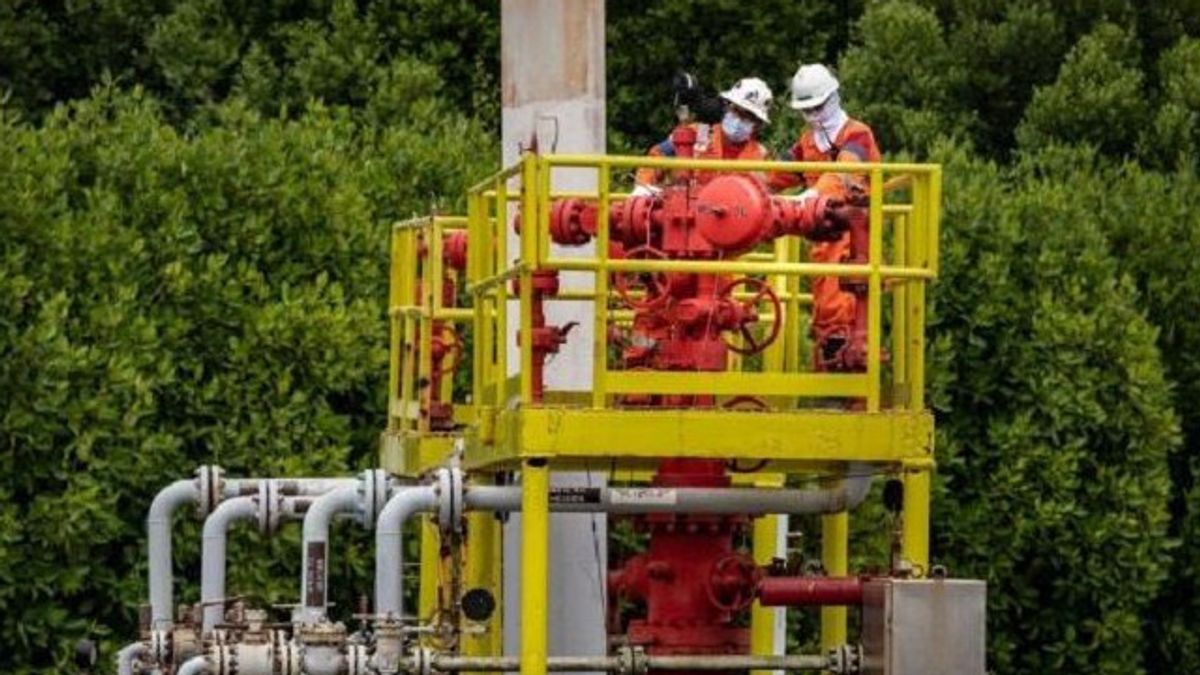JAKARTA - The Indonesian Petroleum Association (IPA) considers natural gas to be the key to maintaining energy security in the midst of energy transition efforts, as a form of support for the government's commitment to reducing carbon emissions.
Executive Director of the Indonesian Petroleum Association (IPA), Marjolijn Wajong said efforts to maintain energy security during the current transition period are something that all stakeholders should pay attention to, considering that the use of new and renewable energy in Indonesia is still not optimal. Therefore, natural gas as a fossil-based energy source that is cleaner than coal and oil is expected to be a mainstay in supporting the existing energy transition.
"The national energy sector now has to face two main challenges at once, namely, increasing production to ensure energy security and reduce import burdens, as well as achieving the net zero emission target," said Marjolijn, in a written statement, quoted on Tuesday, August 23.
According to Marjolijn, Indonesia has enormous natural gas potential, so it is believed that it can support the energy transition process while still meeting national energy needs. However, there is a lot of homework that must be addressed first so that the existing natural gas potential can be produced and utilized optimally.
Marjolijn continued, policy makers should keep trying to ensure that the policies made can increase investor confidence to continue investing in existing gas projects, especially in terms of the economy.
"In addition, the sustainability of natural gas projects also needs to be considered so that the availability of natural gas as an energy source is not interrupted," he added.
Meanwhile, the Executive Director of the ReforMiner Institute, Komaidi Notonegoro, revealed that the use of natural gas as a bridge to the national energy transition is very strategic. This refers to the last few years where the discovery of national oil and gas reserves is dominated by natural gas.
In addition to the potential issue, according to him, the policies taken by the government for the upstream industry must be viewed more broadly.
"It should be remembered that the upstream oil and gas sector has a large multiplier effect, so the added value generated is quite large and significant for the national economy," he said.
However, Komaidi regrets that the policy in the electricity sector is currently experiencing a shift from the use of natural gas as an energy source.
"In the latest energy transition roadmap in the electricity sector, the government tends to prioritize the use of EBT over natural gas," he explained.
In fact, from the regulatory aspect, according to Komaidi, the government has encouraged the use of natural gas for power generation by setting a certain natural gas price policy. To that end, he encouraged the government along with upstream industry players and downstream industry players to sit together to determine the right policies for all stakeholders in the national energy sector.
For information, in Government Regulation Number 79/2014 concerning National Energy Policy, the main energy mix is determined as follows:
- New and renewable energy by at least 23 percent by 2025 and at least by 31 percent by 2050;
- Oil must be less than 25 percent in 2025 and less than 20 percent in 2050;
- Coal at least 30 percent in 2025 and at least 25 percent in 2050;
- Gas is at least 22 percent by 2025 and at least 24 percent by 2050.
"From the targets mentioned above, natural gas is a source of energy whose availability targets have been increased to support the energy transition," he added.
Deputy Chairperson of the Indonesian Natural Gas User Forum (FPGBI), Achmad Widjaja, said that natural gas is a very important raw material for driving the industry. However, currently the majority of natural gas is still intended to meet export needs rather than domestic industry. As a result, the domestic demand for natural gas for the national industry has not been optimally met.
Regarding prices, Achmad assessed that certain natural gas price policies that have been made by the Government so far have not had a significant impact.
"It is felt that this policy has not yet seen an impact on the seven types of industries in question. There has been no innovation, increased competitiveness, and the creation of a multiplier effect as expected, according to Ministerial Decree 134/2021," he said.
Achmad added, the role of natural gas should be irreplaceable because apart from being a raw material or commodity, natural gas is also the most efficient source of energy.
"That's why the government needs to pay special attention not only to the downstream industry, but also to the upstream industry which is a natural gas producer," he hoped.
The English, Chinese, Japanese, Arabic, and French versions are automatically generated by the AI. So there may still be inaccuracies in translating, please always see Indonesian as our main language. (system supported by DigitalSiber.id)













